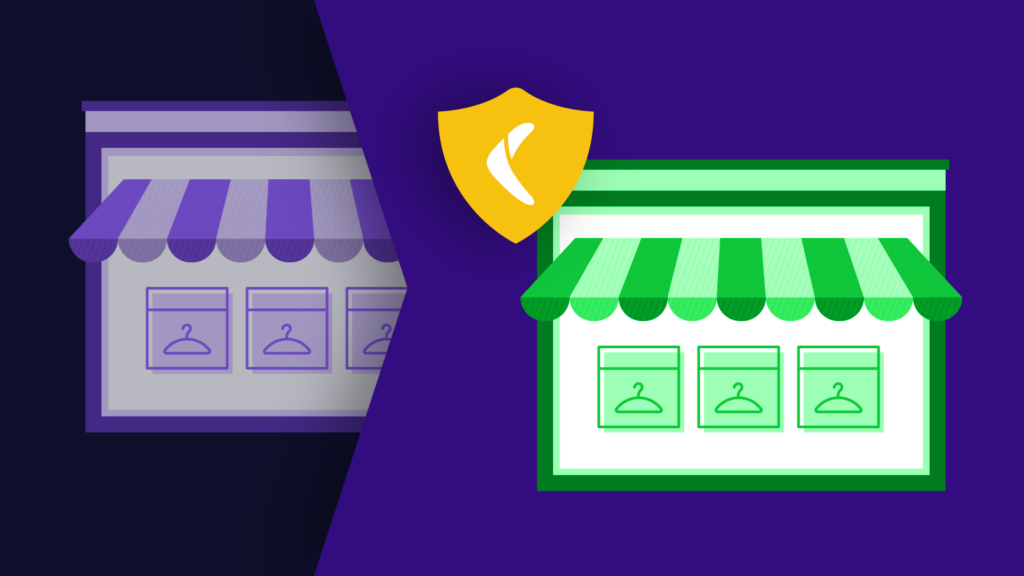Business data is a valuable asset and protecting it is paramount for any organization looking to benefit from their collected and stored data. Data is growing exponentially, and organizations are now tasked to protect a vast volume of data from data breaches or data loss. The best way for an organization to do so is to create a data backup to ensure that the company still has the data safely stored away in case of a loss.
Data vulnerability has never been higher than it is today. Organizations are looking for a corporate data backup solution to protect their critical data. In this article, we’ll talk about creating a data backup and the importance of backup solutions.
What are Corporate Data Backups?
A corporate data backup is a collection of software and hardware devices that work together to create a backup of the company’s data. This ensures that in the case of a data breach, the organization has a backup in place, and it doesn’t create a bottleneck when trying to perform certain processes that require data.
In the early days, all business data was stored away in files and hard copies. In the digital age, many different softwares and operating systems are used to carry out business processes. Often, this software can be categorized as SaaS, software-as-a-service. Instead of paying for individual software licenses, businesses can now choose the “pay as you go” model popular with SaaS apps.
Data contained within SaaS apps is part of a business’s overall dataset, and therefore also needs to be protected. If the data within SaaS apps is corrupted, altered, or deleted, it could cause a massive backlog in the organization’s workflow as SaaS data is particularly difficult to restore exactly as it was before a data loss incident. Implementing a backup process for this data is essential if you want to maintain smooth working operations.
Why is Corporate Data Backup Important?
What is the worst-case scenario for a business? You could argue that it may be high employee turnover or decreasing sales, but the truth is, an organization shutting down is the worst thing that could happen to a company. According to a study conducted by the University of Texas, 94% of businesses suffering from data loss don’t survive. Furthermore, another study suggested that 93% of businesses that lost their data centers for more than ten days filed for bankruptcy within a year.
Most organizations fail to understand the importance of creating a backup and have to face the consequences. This, coupled with data migration to cloud storage and the increasing popularity of work-from-home, creates a larger attack surface, or area where potential cybercriminals could gain access to your systems. Thus, having a backup system in your organization has become necessary.
Whether it’s information you’ve collected from your consumers or critical data for your business, creating a backup can help you navigate through a data breach, reassure customers their data is protected, and ensure audit compliance.
Corporate Data Backup Solutions
1. Removable Media
The most common type of removable media that we’re all familiar with are USB drives and CDs. Any portable device that can transfer data from device to device is referred to as removable media. Removable media can include USBs, DVDs, and CDs. These are all compatible with most desktops and laptops, making it easy to transfer files.
The only downside to removable devices is the lack of storage. The highest amount of data a USB stick can store is 256 GBs. This is nowhere near enough to back up an entire organization’s data and results in several USB drives or CDs that lack security features.
2. External Hard Drives
External hard drives can be considered a meatier version of a USB drive. It’s defined as a hard drive outside the laptop or desktop that can hold data up to 1TB. These are connected to your device wirelessly or via USB cable and are compatible with most laptops and desktops.
3. Cloud Backup
Cloud storage services allow organizations to store an infinite amount of data in a remote location which can be accessed at any time through the internet. Cloud storage also allows you to encrypt the stored data to keep it safe from data breaches. This is one of the most widely used methods to create backups for an organization’s data.
4. Backup Services
Similar to the cloud with a few added advantages, backup services recruit the help of an organization whose primary purpose is to store and protect an organization’s data. These service providers are professionals and have an extensive collection of backup software and hardware devices that allow them to store infinite amounts of data and encrypt this data to keep it safe from any malicious activity. This growing sector of the cloud economy is known as BaaS, backup-as-a-service.
Creating a Corporate Data Backup Plan
Every organization has a different plan when it comes to creating a data backup strategy. This could be moving the backup to the cloud or creating a backup in your servers to keep data within the internal infrastructure.
Experts suggest a few best practices should be incorporated into your backup strategy to offer the best results. These are as follows:
3-2-1 Backup Strategy
Experts believe that data should be backed up based on the 3-2-1 backup strategy. This strategy involves the creation of three copies of data, each is stored in two different storage solutions, and at least one of these solutions is stored remotely. This reduces the risk of data loss and ensures you can recover from any type of disaster, even if you lose access to your premises.
Regular Backup
Backing up data isn’t a one-time thing and requires you to check your backed-up data and update it periodically. Failure to do so can result in data loss over time.
Certain applications change data regularly, which makes it difficult to keep a regular backup. Organizations need to opt for a solution that automatically backs up data daily.
Higher Storage Options
An organization often saves money on storage by only storing data that is critical to them. This may save you a bit, but if any of the data you need isn’t backed up, it can result in serious repercussions.
Most people consider creating a backup as a costly process and try to save as much money as they can. These organizations fail to understand that data restoration can cost an organization a lot more, and it’s more cost-effective to take a proactive approach rather than a reactive approach.
Create Physical Copies
In the digital era, physical copies have taken a back seat and are considered obsolete. The fact of the matter is, physical copies are probably the best way to backup data. This is because most digital backups can be remotely accessed and hacked. Physical copies would require someone to be in the office to access them.
Although physical copies are at risk of natural disasters and other incompetencies from employees, it’s important to keep both physical and digital backups of your critical data to cover all your bases. The combination of a physical copy and a digital copy protects your organization against different types of data disasters; this is another example of how the 3-2-1 backup rule ensures complete data protection.
Wrapping Up
Creating a backup for your data isn’t something your organization can opt for – it’s a necessity if they hope to succeed in their business. Data loss due to breaches or natural disasters can result in companies facing severe consequences. These consequences can go as far as shutting down your organization.
Practice creating data backups today and ensure that they’re regularly updated. This can protect your organization in case of a major data loss and might be the lifeline that keeps your organization going.
From small businesses to large enterprises, Rewind’s backup solution keeps your data secure and helps you get back to business quickly after a mistake, buggy third-party app, or cyberattack like ransomware.



